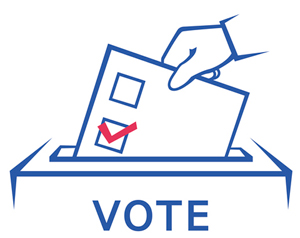MISUSE OF FUNDS
AND EMBEZZLEMENT
QUESTION:  Our association spent $2,000 on a holiday party. We were told that doing so was a violation of our board's fiduciary duties, a misuse of funds, and embezzlement. The person claims the board has to refund the money to the HOA immediately. Is that true? Our association spent $2,000 on a holiday party. We were told that doing so was a violation of our board's fiduciary duties, a misuse of funds, and embezzlement. The person claims the board has to refund the money to the HOA immediately. Is that true?
ANSWER: No, it's not true. It is common in the industry for associations to host different events for homeowners and board members. Neither instance amounts to a breach of fiduciary duties, misuse of funds, or embezzlement.
Community Events. Money authorized by the board for community barbecues, tennis tournaments, Christmas decorations, bingo nights, a New Year's dance, etc. all benefit the community even if some members attend but others do not.
Board Appreciation. Money spent on a board appreciation dinner as well as certificates and plaques given to volunteers is perfectly legal. It rewards volunteers and encourages others to volunteer. All of these activities are common in the industry and do not qualify as a misuse of funds or breach of fiduciary duties.
Possible Defamation. Embezzlement is the fraudulent taking of money or property of another by misrepresentation or concealment of information. Community events and board appreciation events do not qualify as embezzlement. Persons who maliciously accuse boards of a crime face possible defamation actions.
RECOMMENDATION: Members should be grateful that neighbors are willing to volunteer their time to help the community. Instead of being a Grinch and criticizing special events, members should support and participate in them.
AN INTIMIDATING NOMINEE FOR THE BOARD
QUESTION:  One of our directors resigned and the board asked for volunteers to fill the position. One person volunteered but several owners objected because she can be intimidating. Since there is nothing that disqualifies her as a candidate for election, do election rules apply to an appointment as they do for an election? One of our directors resigned and the board asked for volunteers to fill the position. One person volunteered but several owners objected because she can be intimidating. Since there is nothing that disqualifies her as a candidate for election, do election rules apply to an appointment as they do for an election?
ANSWER: Candidate qualifications for appointment to the board apply to the extent the person must be an owner to sit on the board. However, just because a person is qualified does not mean the board is required to appoint her to the board any more than members are required to vote for her in an election.
If directors feel this person is too aggressive, or disruptive, or driven by a personal agenda, etc., they can choose not to appoint her to the board. They can seek out someone else to fill the position.
SMALL HOA
SECRET BALLOTING
QUESTION:  In an association of just 4 members, is there any reason we can't just waive our right to secrecy? In our HOA, because the voting power of each member is based on the square footage of their unit, and because the units are all different sizes, it is obvious how each voted even with a secret ballot. I realize that section 5100 starts with "Notwithstanding any other law or provision of the governing documents," I've seen cases saying that even the right to vote in a government election can be waived. In an association of just 4 members, is there any reason we can't just waive our right to secrecy? In our HOA, because the voting power of each member is based on the square footage of their unit, and because the units are all different sizes, it is obvious how each voted even with a secret ballot. I realize that section 5100 starts with "Notwithstanding any other law or provision of the governing documents," I've seen cases saying that even the right to vote in a government election can be waived.
ANSWER: The Davis-Stirling Act is
not designed for small associations. All the voting requirements in the Act are burdensome and expensive to implement. I agree with your view on this matter. I believe secret balloting can be waived.
Small associations tend to operate informally, especially when it comes to board meetings and elections. I've attended annual meetings held in owners' condos where ballots were not mailed out in advance of the meeting. Instead, they were distributed to those who attended the meeting. Members marked their choices and handed them in. A volunteer received the ballots and read out the votes while someone else kept a tally and announced the results.
I've also attended meetings where no ballots were used. The board would simply ask for volunteers and, by general consensus, individuals filled empty seats. There was no secrecy involved. If the membership in a small association such as your agrees to the process, the condo police are not going to show up on your doorstep and take you to condo jail.

|